The Times Higher Impact Rankings are the only global performance tables that assess universities against the United Nations’ Sustainable Development Goals (SDGs). LSBU has consistently performed well. We were ranked 27th in the UK and in the top 200 universities in the world in the fifth edition of the prestigious Times Higher Impact Rankings 2023, solidifying our position among the world's top universities. This achievement highlights LSBU's unwavering dedication to excellence in education, research, and community engagement.
Among 1,591 universities from 112 countries or regions, LSBU was also in the top 100 globally for the four SDGs for which it submitted: SDG10: Reduced Inequalities (8th, 5th in 2022), SDG1: No Poverty (32nd, 72nd in 2022), SDG5: Gender Equality (60th, 58th in 2022) and SDG7: Affordable and Clean Energy (84th). LSBU’s scores have increased year-on-year in three of the nine SDG tables entered, causing increases in ranking for two SDGs: SDG1: No Poverty (+40) and SDG7: Affordable and Clean Energy (+17).
Read about the rankings and our Deputy Vice Chancellor's reaction to our success here.
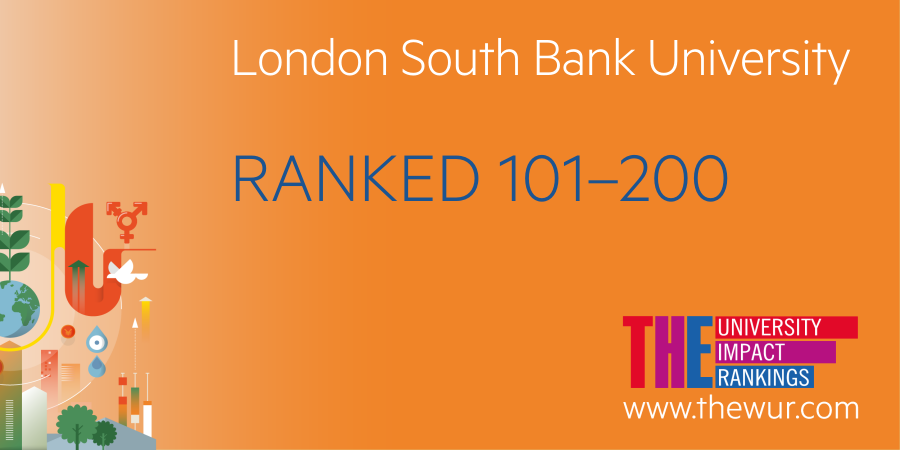
We will strive to improve our scores in the impact rankings year-on-year.
QS Sustainability
We made our first submission for the QS World University Rankings: Sustainability in 2023-24. There were 1,403 institutions globally; 493 in Europe and 93 in the UK. We were ranked at 594 globally, 251 in Europe and 61 in the UK.
Of the three main categories to the ranking: Environmental Impact, Social Impact, and Governance, we were ranked at 221 globally for Equality; 332 for Environmental Sustainability; and 359 for Governance.
People and Planet
People & Planet’s University League is a comprehensive and independent league table of UK universities ranked by environmental and ethical performance. It is compiled annually by the student campaigning network, People & Planet. In the 2023-24 league table, LSBU ranked 93 out of 151 institutions, up 21 places from the previous year. Notably, we received 95 percent for Education.
Some performance indicators
In the LSBU Report and Financial Statement 2020-21, the institution’s commitment to sustainability was reiterated:1 “LSBU is dedicated to protecting our planet and society. We promise to become a university of the future – one that is conscious, one that is responsible and one that is sustainable. We will do this through environmental sustainability and literacy, with this being embedded through the reduction of carbon emissions and landfill use, and by increased recycling”.
As part of the LSBU Group’s 2025 Corporate Strategy, it aims to:
- Use its estate effectively with a utilisation rate of 50 percent; and
- Reduce its carbon footprint by 25 percent between 2020 and 2025, with the goal of achieving net zero carbon emissions by 2050.
It will do this through: environmental sustainability and literacy, which will be embedded through the reduction of carbon emissions and landfill use, reducing water consumption, increasing recycling, delivering more events online, and promoting sustainable innovation.
Annual review reports
We report our performance in all areas of sustainability in our annual review reports, focusing on the SDGs which we have committed ourself to contributing towards their attainment. In the LSBU Group Annual Review 2020-21, progress made by the LSBU Group in operationalising and pursuing the group’s contribution to the attainment of the SDGs under the objectives and strategic thrusts of the corporate plan, was reviewed, the achievements were highlighted, and further initiatives, plans and related targets were outlined.2
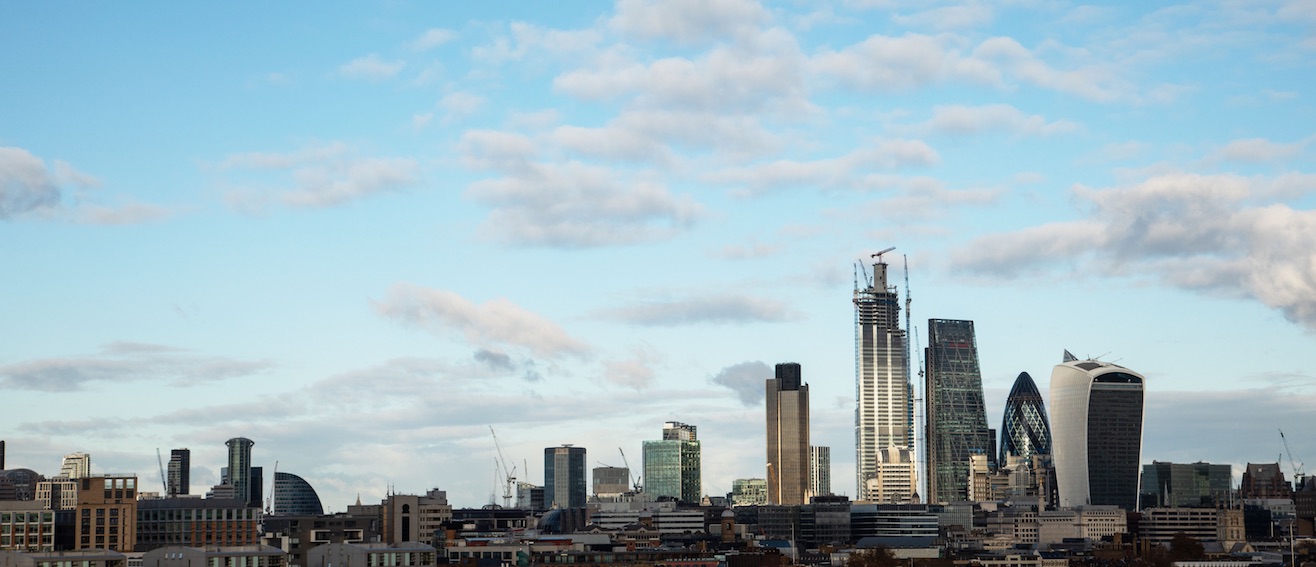
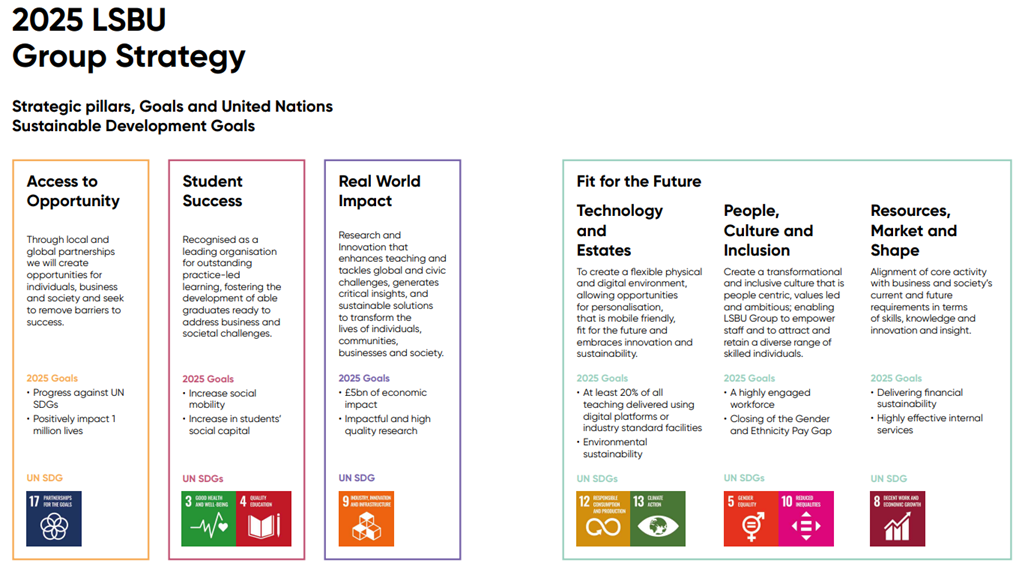
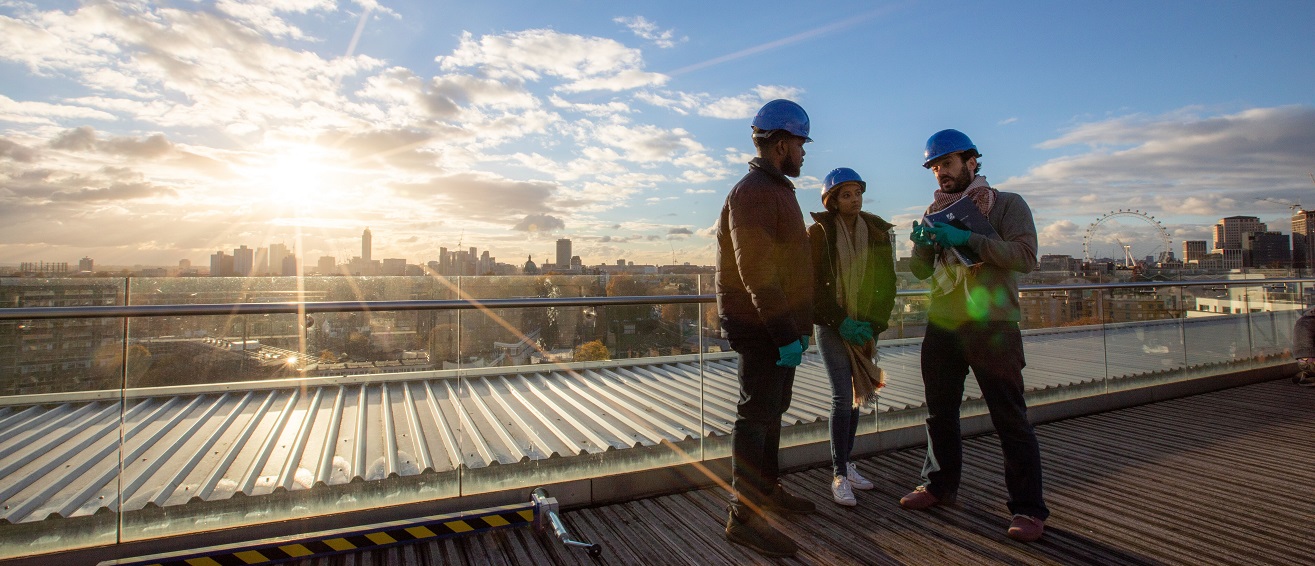

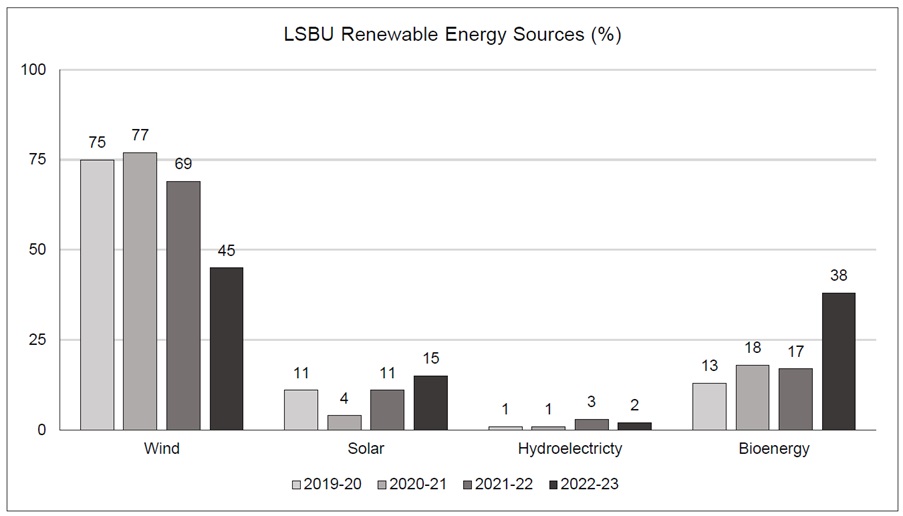
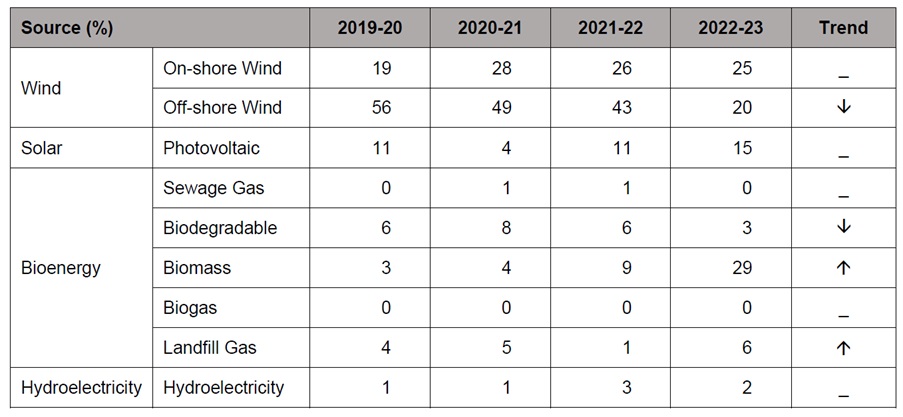
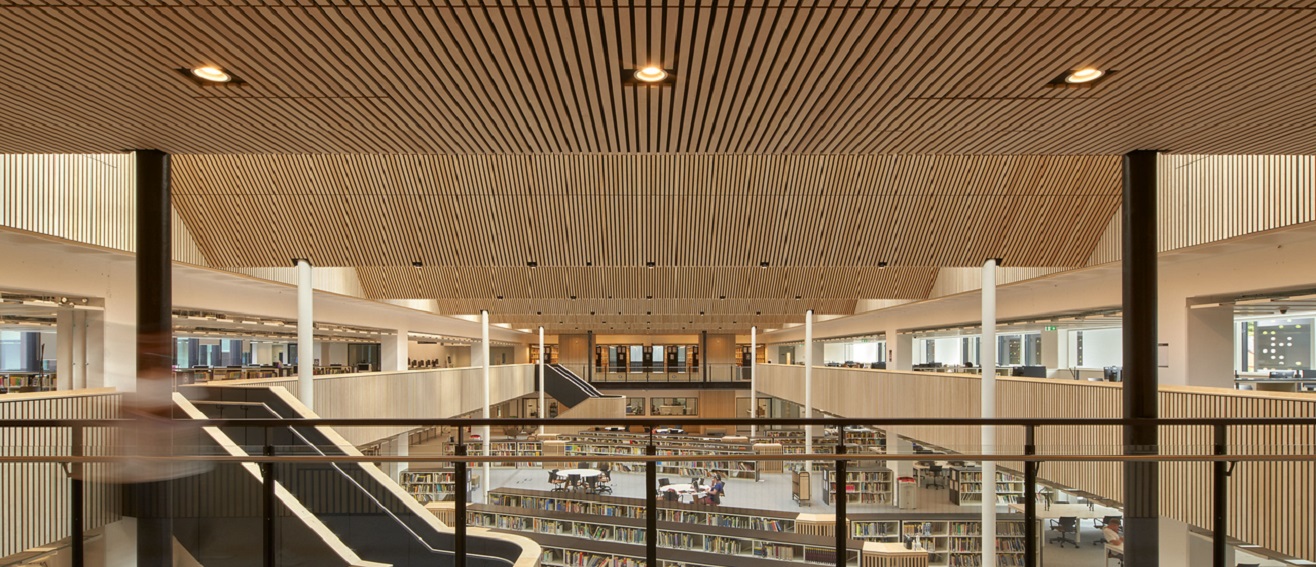 rvices
rvices